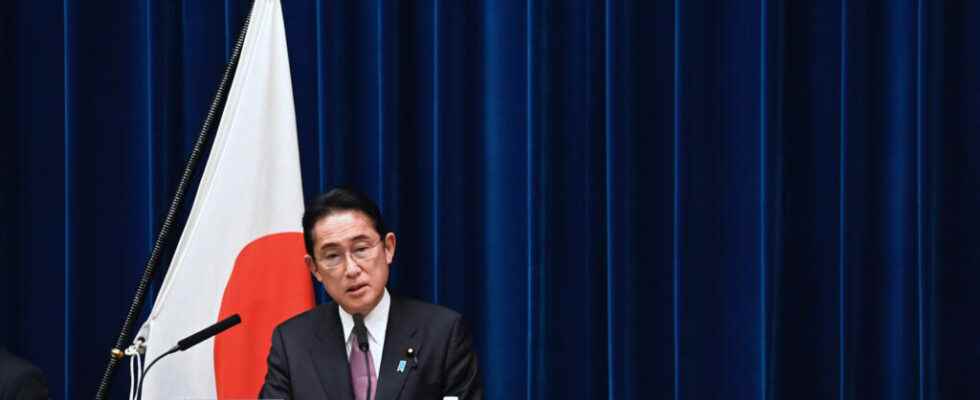Japan’s new defense doctrine will “strengthen and modernize” the military alliance with the United States. This is how the White House reacted to the doubling of the defense budget unveiled by Japan. Tokyo announced this Friday, December 16 that the country would strengthen its capacities to the tune of around 300 billion euros, in a context of heightened tensions with China. Interview with Guibourg Delamotte, lecturer in political science in the Japan department at Inalco.
RFI : Its pacifist Constitution prohibits in principle in Japan to acquire a real army. However, the government plans to double the defense budget by 2027, from 1% to 2% of GDP. What factors motivated this decision? Is this a response to the Chinese threat ?
Guibourg Delamotte: The effort made in terms of defense is very substantial. Japan therefore goes to 2% of its GDP. It is a way of aligning with the recommendations of NATO, which recommends around 2% of GDP for the defense budget. But it is also a reaction to the threat and a preparation for possible conflicts with China or even with North Korea, in the event of an offensive on their side.
The war in Ukraine is another factor that comes into play. Until now, the Japanese have been very hostile to a development in the field of defence. However, this time, this doubling proposed by the government is very well received. This is presumably the result of the war in Ukraine. The Russian invasion of Ukraine made the Japanese realize that wars were entirely possible. Even in Europe, considered the stable zone par excellence.
The war really took the Japanese by surprise. So, suddenly, there was a form of association, in people’s minds, between this hypothesis which was a possible attack from North Korea and then a Chinese threat, and then a realization of this prospect, through this war in Europe.
It must also be said that US President Joe Biden – and before him already Donald Trump – has constantly pushed Japan to inflate its military spending. Moreover, the Americans intend to sell 500 Tomahawk cruise missiles to Japan. Will these weapons allow Tokyo to have a “ counterattack ability » ?
Yes, this is indeed one of the developments. This should make it possible to strike North Korea from Japanese territory. Given the improvement in North Korea’s missile technology, the anti-missile defense system that Japan had developed since the 2000s no longer makes it possible to deal with it.
Now, North Korean missiles are no longer just ballistic, that is to say, they no longer have this predictable curve that is the ballistic curve. They are now missiles with non-linear trajectories. So the only way to protect yourself from them is to attack them before they take off. This is the argument that has been worked out and which justifies today in the eyes of Japan this revision of the defense doctrine.
The purchase of American Tomahawks is indeed considered. Previously, there was the recent purchase of the F-35 fighter jets. Updating the ballistic missile defense program, which remains relevant despite everything, will also involve collaboration with the United States. So there are all kinds of projects indeed.
Aren’t you worried that this decision will rekindle tensions between Japan and China?
It’s a possibility. But the Japanese perspective is that China is power sensitive. If it has in front of it soft countries, soft bellies, it rushes into the breach. This is what has been observed in the South China Sea, where China has appropriated the whole of this contested area and militarized it.
Vietnam, the Philippines and Indonesia also had claims there, but they did not have the capacity to face China. So, Japan has drawn the conclusion that it had to be part of a balance of power with Beijing.
This does not mean that Japan is becoming warmonger, nor does it want to use its weapons, but it wants to be prepared for all eventualities. Watching Chinese politics, watching developments around Taiwan, watching Chinese President Xi Jinping’s speeches, Japan believes this is the way to prepare.
In fact, this does not mean at all that they are severing their relations with China. They are each other’s first business partner, and they are well aware that they have no interest in starting a conflict. But China cannot completely ignore the context in which Japan operates.
Guibourg Delamotte, lecturer in political science in the Japan department at Inalco, is the author of:
- Democracy in Japan, singular and universal (ENS Editions, 2022)
The Abe Legacy, Lexington 2021. Geopolitics and geoeconomics of the contemporary world (The Discovery, 2021)
►Also read:
